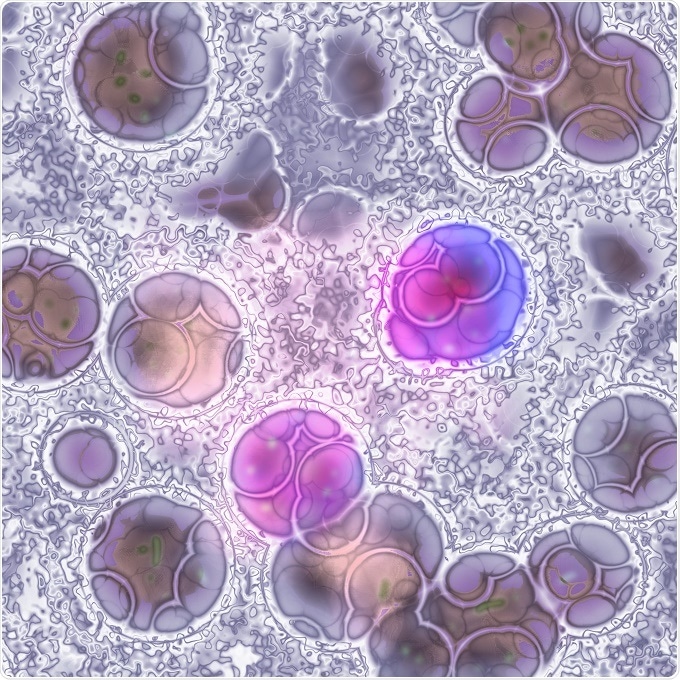A UK leukemia charity, Leukaemia CARE, has launched the Spot Leukaemia campaign to raise awareness of the signs and symptoms of leukemia after a survey revealed that leukemia diagnoses are commonly delayed due to poor understanding.

Giovanni Cancemi / Shutterstock.com
Leukemia is the 12th most common cancer in the UK, with more than 9,500 people being diagnosed each year. It develops in blood-forming tissue, usually the bone marrow, and results in over-production of abnormal white blood cells. There are many different types of leukemia, characterized according to the type of cell affected and the speed of growth.
Since leukemia has non-specific symptoms, such as fatigue, bruising, joint pain, and problems sleeping, it is commonly not recognized until the disease is at an advanced stage. Leukemia diagnoses are more likely to be made during an emergency admission than those for all other types of cancer. A staggering 64% of acute lymphoblastic leukemia cases and 53% of acute myeloid leukemia cases are diagnosed following an emergency admission.
Zack Pemberton-Whiteley, Head of Campaigns and Advocacy at Leukaemia CARE, said:
GPs play a crucial role in diagnosing leukaemia early. However, blood cancer is relatively rare, they may only see one or two cases each year, and the symptoms are notoriously vague and non-specific. This makes diagnosing leukaemia quickly even more challenging".
Leukaemia CARE has surveyed over 2,000 people living with leukemia in the UK to evaluate their experiences. Their report shows that more than half (58%) of leukemia patients had not consulted their GP for more than a month after first experiencing symptoms. For one in ten (9%) of the patients surveyed, it had taken over a year before they discussed their symptoms with a GP. Furthermore, more than one in ten patients were initially prescribed treatment for a different condition by their GP. Less than half of leukemia patients (44%) felt their GP had a good understanding of leukemia.
Leukaemia CARE has today warned that this lack of awareness among the public and GPs, which delays in diagnosis, is negatively impacting survival rates and quality of life of patients with leukemia. To address this, they have launched the Spot Leukaemia campaign to improve awareness of the signs and symptoms of leukemia among both the public and GPs. As part of this campaign, they have collaborated with the Royal College of General Practitioners to develop two online training modules to give GPs a better understanding of blood cancer.
Zack Pemberton-Whiteley commented “We urgently need to improve leukaemia awareness among GPs so that patients can get a diagnosis and access treatment faster. That’s why Leukaemia CARE has launched the Spot Leukaemia campaign, along with training modules for GPs.”
Source
Leukaemia CARE, Living with Leukaemia. Available at: www.leukaemiacare.org.uk/living-with-leukaemia